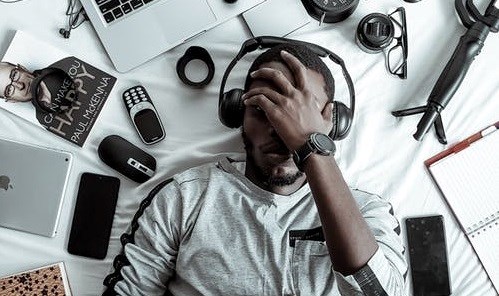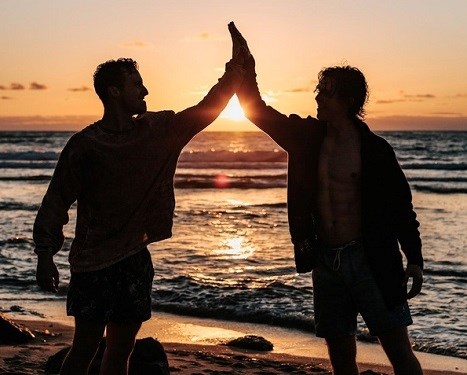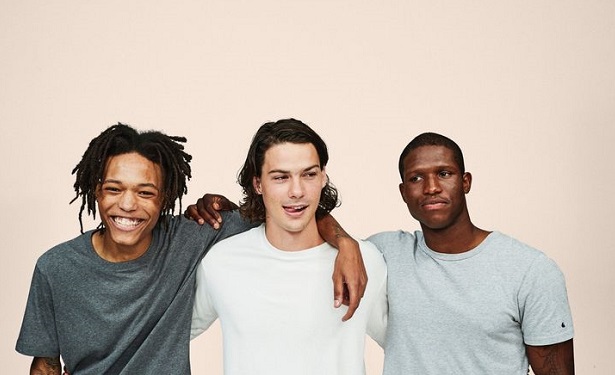What it means to be a man today: breaking through stereotypes
2020 was tough on all of us. The global pandemic has led to a mental health crisis and our helpline has never been more in demand.
From The Calm Zone

Calm's survey of 2,000 people across the UK shows that a combination of pandemic pressures and toxic stereotyping in the media are taking an especially heavy toll on the mental health of men under 35. It also underlines how important it is that we normalise talking about these struggles.
The MANdate research – put together with media agency UM and JOE Media – shows that younger men are facing severe mental pressures fanned by negative gender stereotypes in the media and by the ongoing battle against the pandemic:
- one in seven men aged 18-34 have thought about self-harm (14%), compared to only 4% of men aged 35+
- more than a third (39%) admit they feel overwhelmed, versus 17% of older men.
And Covid is, perhaps unsurprisingly, also making things worse: men aged 18-34 are far more likely than older men to be worried about money and cash flow (57% versus 32%) or staying employed (55% vs. 31%) in the pandemic.

What does it mean to be a man? Throwing out outdated stereotypes
75% of younger men believe social media is making it harder to remain psychologically healthy.
The millennial and Gen-Z men we talked to are clear on some of the major causes of their distress: 64% think male stereotypes in advertising/media do real psychological damage. The survey showed that the stereotypes men aged 18-34 find most offensive are those around being a ‘player’, while 79% think the same about being seen as ‘sex-obsessed’. Men of colour also face specific stereotypes about being angry, lazy and rude.
Younger men don’t connect with traditional, blokey stereotypes of masculinity such as being ‘always strong’ or ‘a lad’.
Both of which half of younger men (46%) see as detrimental and dangerous. In fact, our survey shows that men, especially those under 35, respond best to stuff that breaks through the stereotypes – they think the best male-focused ads show them as ‘competent parents’. It shows that the public needs to see realistic depictions of men – men who are good at what they do and good dads and also open, vulnerable and emotional.
Talking about our generation talking
56% of younger men believe the best way to promote a positive perception of masculinity is to normalise getting help
The research reveals a generational divide between men of different ages and how they struggle differently with their mental health – and highlighted a promising shift for younger men. It showed that men aged 18-34 want to normalise getting help – and 44% think men should be shown that it’s okay to fail.
At CALM we know that this is so important. ‘Strong’ doesn’t mean being silent but it’s a decades old issue and we’re working every day to try to tackle it. By simply allowing men to show vulnerability we will go a long way to improve the situation for so many.
Another piece of good news? 63% of men think society has improved at accepting non-traditional male roles in the last 3 years

Brands have a big role to play…
80% of younger men think that brands and ads should try and promote a more positive impression of men’s mental health.
Younger men are significantly more likely to feel like they have to look a certain way (59%, vs. 30% of men aged 35+) and nearly half (44%) believe brands should show men of diverse body shapes. And by listening to these views brands also have a lot to gain – men under 35 are significantly more likely (51%) to purchase from a brand that is trying to break offensive male stereotypes.
Together we can step up and break down these damaging stereotypes that currently shape masculinity…
Here a panel of experts talk about what this research means and what we can do about it. Marvin Sordell, ex-footballer, producer, mental health advocate and CALM ambassador.
And Calm's Simon Gunning, our CEO, Poorna Bell, award-winning journalist, author and CALM ambassador, Amarilis Whitty, Mattel’s PR Director for EMEA, and Enyi Nwosu, Chief Strategy Officer for UM UK, talked about the findings of the research and how we can change things. You can watch it all here:

